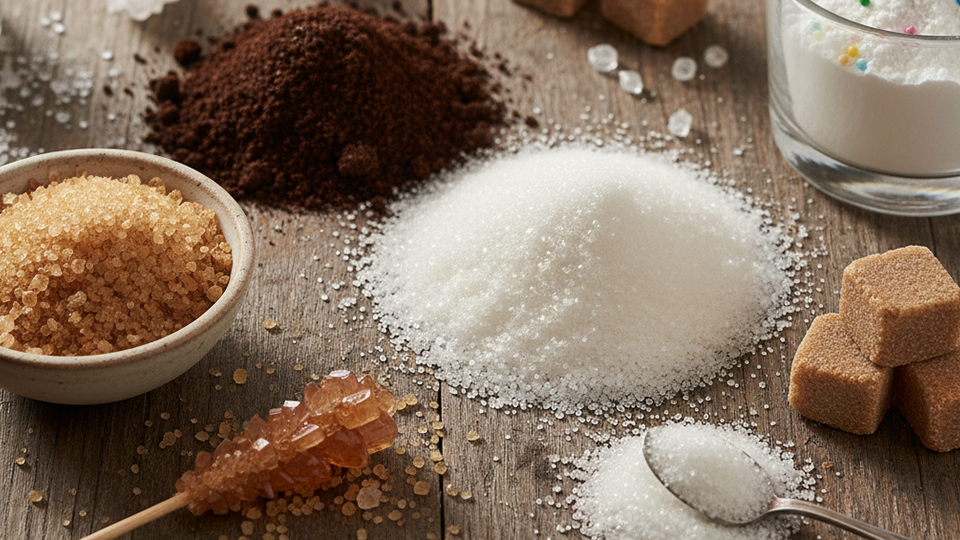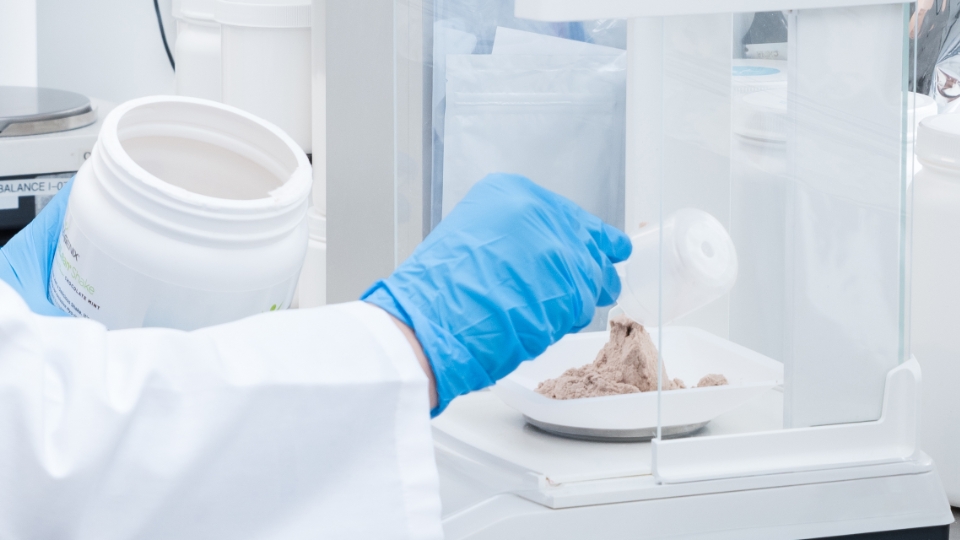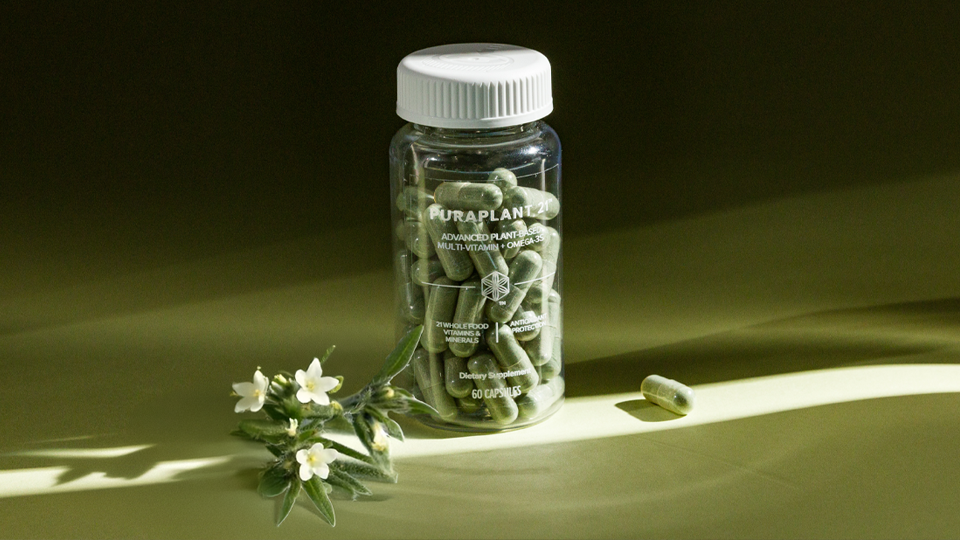Simplification is an important part of weight loss. Being successful with weight loss really depends on simplifying our choices and approach so that simple becomes something we can stick with.
Now, many Americans are making a move to simplify the ingredients on their food labels. Unfortunately, this is not so easy for people that can’t cook at home or that require quick, on-the-go meals.
However, quality nutrition can come in more than one package. Isagenix works to provide simple dietary solutions based on science to help you lose weight, and then maintain that healthy body weight, even with a fast-paced schedule.
Like any nutritional product, shelf-life, stability, texture, taste, balanced nutrition, and a palatable appearance are among our many priorities. Nonetheless, Isagenix has a commitment to providing great tasting, high-quality ingredients. Everything in our food and on our label has a purpose. With careful attention to detail, we make foods that are nutrient-packed and easily digestible. To put some common concerns at bay, here are five ingredients that you may have been wondering about, explained:
1. Silicon Dioxide
Silicon dioxide is not just in your IsaLean Shake, it is in the ground, your body, and your bones. Silicon dioxide is a type of sedimentary rock that is one of the most abundant naturally-occurring minerals on Earth.
Both the Environmental Protection Agency and the Food and Drug Administration have recognized silicon dioxide as absolutely harmless and safe for consumption (1,2). Underlining the absence of a threat, these authorities don’t even require silicon dioxide to be included on the label.
In the IsaLean Shakes, silicon dioxide prevents the powder from clumping by stabilizing the other ingredients and allowing the shake to blend well. No one wants a shake that won’t mix. Silicon dioxide plays a part in that smooth, creamy consistency that we all love from an IsaLean Shake.
Silicon is simply earth. It is found in oats, barley, rice bran, green beans, spinach, bananas, dried fruits, and nuts. It is important not to confuse the all-natural silicon with “silicone.” Silicone is a synthetic polymer (as a liquid or rubber-like plastic) that is used in breast implants. Silicone only happens to be made from silicon and other chemicals.
2. Chromium
Chromium amino acid chelate is not the easiest name to read—it makes sense that some uneasiness may follow when it’s in your food. So what is this odd-sounding nutrient?
Let’s stick with the mineral part: chromium (the amino acid chelate is provided for absorption). Chromium is essential for humans, particularly for managing blood sugar levels. Some confusion surrounds chromium as some people think it’s a toxic byproduct of industry, while others recognize it as a normal part of the food chain. It can’t be both, can it?
Chromium comes in two forms: chromium 3+ (trivalent) and chromium 6+ (tetravalent). The 3 and 6 correspond to the number of electrons the chromium atom has, or more correctly, the number of electrons it is missing. A master of oxidative damage, chromium 6+ is harmful to health, is a byproduct of industry, and is not found in the food supply. And most certainly not is it found in Isagenix products!
Chromium 3+ is widely distributed in the food supply, found in egg yolks, brewer’s yeast, apple peels, black pepper, dietary supplements, and the IsaLean Shake. Trivalent chromium gained fame in 1959 for its redeeming qualities that dubbed it the “glucose tolerance factor.” The chromium in brewer’s yeast improved glucose tolerance in aging mice (3)—a finding that is particularly relevant to consumers today as it shows the potential chromium 3+ has as a safe, essential mineral that manages metabolism and blood sugar.
There is no RDA (Recommended Dietary Allowance) for chromium, but the AI (adequate intake) has been set. There is little research into chromium deficiency; however, some symptoms of diabetes or poor blood glucose regulation have been reported.
3. Phenylalanine
The IsaDelight is an enjoyable indulgence packaged with a warning. Chances are if you chomp at the bit for a piece of chocolate, you have stumbled across an IsaDelight and read the label: “Phenylketonurics: Contains phenylalanine.” So what is phenylalanine and why would it be selectively pointed out beyond inclusion in the ingredient list?
Some individuals have a rare disorder called phenylketonuria (PKU) and they must avoid all foods with phenylalanine because they cannot metabolize it. However, for most of us, it is simply an essential amino acid.
There are nine amino acids that are essential, meaning they must be obtained from the diet. Phenylalanine is one of the essential amino acids, notable for mood, brain function, and energy. Naturally occurring, phenylalanine is found in many protein-rich foods, including milk, eggs, and beef. Phenylalanine has many functions in the body, among them being a precursor for body proteins and some of the brain chemicals responsible for mood, as well as being a component of the hormones that govern metabolism and parts of the body’s stress response (4).
A point of confusion people may have with phenylalanine is because of its use as a component of a commonly used artificial sweetener. Aspartame, sold as NutraSweet, is a methyl ester of a dipeptide that includes both aspartic acid and phenylalanine. Foods containing aspartame must also contain a warning for phenylketonurics. However, the artificial sweetener is not used in IsaDelight or any Isagenix products.
4. Palm Kernel Oil
Palm kernel oil is a stable vegetable oil that is extracted from the seed of Elaeis guineensis, the oil palm. Thriving in tropical areas, oil palm is commonly found in Southeast Asia and central Africa. Palm kernel oil is solid at room temperature, which is something that is unique for a plant-based oil. The reason is because of its high content in the medium-chain triglyceride lauric acid (similar to coconut oil).
A cardio-friendly alternative to animal fat, palm kernel oil is free of dietary cholesterol, and there is no evidence that it increases production of cholesterol in the body (5). Palm kernel oil is stable at room temperature, does not require hydrogenation (the process behind trans-fat formation), and has a long shelf life. Isagenix products use sustainably sourced palm kernel oil, certified by the Roundtable on Sustainable Palm Oil (RSPO).
5. Maltodextrin
A derivative of starch, maltodextrin is more easily digestible than other complex carbs, but it does not cause the same blood sugar spike associated with simple sugars. Semi-sweet or flavorless, this polysaccharide (chain of sugar units) comes from corn, tapioca, potato, wheat, or rice (6). Used as a thickening agent or to round out sweetness, maltodextrin is a white powder that is native to both home-cooking and packaged foods.
There is some evidence that maltodextrin is ideal for a pre- or post-workout carbohydrate source due to readily available fuel without the digestive discomfort associated with simple sugars. The maltodextrin in FiberPro is resistant to digestion. It acts more like a soluble, prebiotic fiber that helps support normal gastrointestinal health.
Finding your way through food labels is rapidly becoming an art-form. With new ingredient names, new discoveries, and new research unleashed every day, staying on top of your food is practically a full-time job. Isagenix is firmly committed to high quality foods and supplements to augment and sustain your efforts of attaining an ideal weight. Whether your goal is weight loss, body sculpting, or defying aging—Isagenix is here to help.
References
- Lewis & Harrison, LLC. Generally recognized as safe determination for silicon dioxide when added directly and/or indirectly to human food. GRAS Exemption CLAIM CAS#7631-86-9. Online: http://www.accessdata.fda.gov/scripts/fcn/gras_notices/GRN000321.pdf?utm_campaign=Google2&utm_source=fdaSearch&utm_medium=website&utm_term=silicon dioxide&utm_content=3
- R.E.D. Facts. Silicon Dioxide and Silica Gel. United States Environmental Protection Agency; Pesticides and Toxic Substances 1991; 738-F-91-107. Online:http://www.epa.gov/oppsrrd1/REDs/factsheets/4081fact.pdf
- Dietary Supplement Fact Sheet: Chromium. Office of Dietary Supplement: National Institues of Health. 2005; Online: http://ods.od.nih.gov/factsheets/Chromium-HealthProfessional/.
- Phenylalanine. University of Maryland Medical Center. 2011; Online: http://www.umm.edu/altmed/articles/phenylalanine-000318.htm
- Agriculture and Consumer Protection. Small-scale palm oil processing in Africa. FAO Corporate Document Repository. Online: http://www.fao.org/DOCREP/005/y4355e/y4355e03.htm
- Department of Health and Human Services. Listing of Specific Substances Affirmed as GRAS. Part 184, Subpart B, Sec. 184.1444 Maltodextrin. 2011; 21:3. CITE: 21CFR184.1444. Online: http://www.accessdata.fda.gov/scripts/cdrh/cfdocs/cfcfr/CFRSearch.cfm?fr=184.1444





